Overview: Rise of Peer-to-Peer EV Charging Platforms
The electric vehicle (EV) revolution is accelerating worldwide, but a major challenge remains access to reliable charging infrastructure. While electric vehicle (EV) adoption continues to surge across regions, the expansion of public charging stations often struggles to keep pace. This infrastructure gap is especially evident in densely populated urban areas, where public chargers are frequently overburdened or difficult to access.
P2P EV Charging Platform helps bridge this gap by allowing individuals and businesses to rent out their private electric vehicle (EV) chargers to nearby drivers. As a peer-to-peer (P2P) EV charging platform, it connects those in need of charging with underutilized private chargers creating a decentralized, flexible, and community-driven charging network that scales with demand.
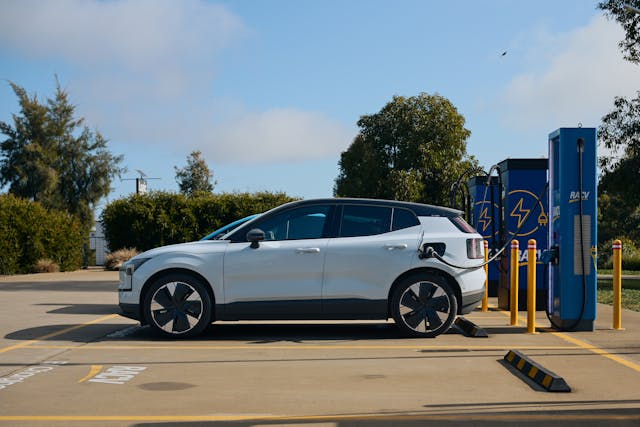
Market Research & Growth Insights
With the global electric vehicle (EV) charging infrastructure market projected to exceed USD 121 billion by 2030, the demand for accessible and scalable charging solutions is growing faster than traditional public infrastructure can keep up. In many countries, the ratio of EVs to public chargers remains critically low often ranging from 1 charger per 135 to 235 vehicles leaving drivers with limited options.
This is exactly where decentralized, peer-to-peer (P2P) platforms like EV Charging Platform make a difference. By enabling individuals and businesses to list their private chargers, these platforms unlock underutilized infrastructure, create new income opportunities, and help scale electric vehicle (EV) charging networks faster and more efficiently than centralized models alone.
Key Market Insights:
- Peer-to-peer (P2P) EV charging is rapidly gaining popularity worldwide, as communities seek flexible, cost-effective alternatives to limited public charging infrastructure.
- EV adoption is accelerating across urban centers globally, particularly among environmentally conscious and tech-savvy individuals.
- A significant portion of private EV chargers remain underutilized, presenting a valuable opportunity for sharing economy models to improve access and efficiency.
- Community-driven platforms like Airbnb and BlaBlaCar have demonstrated the power of peer-to-peer networks, setting a strong precedent for P2P EV charging to scale effectively.
- Governments around the world are encouraging EV infrastructure expansion, opening doors for private innovation, partnerships, and decentralized charging solutions.
Target Audience
P2P EV Charging Platform is designed for a wide range of users participating in the global shift toward electric mobility:
- EV Owners in urban and suburban areas who need flexible, accessible charging options beyond the often limited public infrastructure.
- Homeowners with private chargers who want to earn passive income by sharing their underutilized EV charging setups.
- Retailers & Small Businesses aiming to monetize their existing chargers during non-peak hours while attracting additional foot traffic.
- Residential Complexes & Property Managers looking to offer organized, bookable charging solutions for residents and local electric vehicle (EV) drivers.
- Fleet Operators & Mobility Service Providers who require reliable, decentralized charging locations to reduce downtime and optimize operations.
Introduction to the P2P EV Charging Platform
The P2P EV charging platform enables electric vehicle (EV) owners to rent charging stations owned by individuals, shops, or housing societies. Charger hosts list their availability, and EV users can find, book, and pay for slots through the app. It eliminates:
- Dependence on overcrowded public charging stations
- The need for proprietary charger networks
- Range anxiety and scheduling uncertainty
Key capabilities include:
- Geo-located charger discovery
- Booking and calendar management
- Flexible pricing and scheduling
- Cashless and secure payments
- Review and feedback system
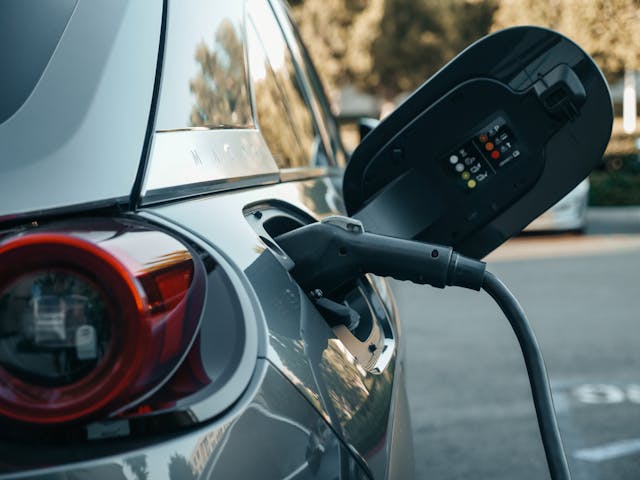
Need for an P2P EV Charging Platform
Electric vehicles (EVs) are reshaping the future of transportation worldwide. However, one of the most significant challenges to broader EV adoption is the lack of accessible and reliable charging infrastructure. While public charging stations are expanding in major cities, they still fall short of meeting the fast-growing demand especially in residential areas, commercial zones, and smaller communities.
Key Problems the Platform Solves:
- Inadequate Public Charging Options: With the current charger-to-vehicle ratio being far below ideal levels, electric vehicle (EV) users often struggle to find nearby charging points.
- Idle Chargers Go Unused: Many private chargers in homes or businesses remain idle for most of the day, representing a wasted opportunity.
- Unpredictable Availability: Public charging stations are frequently overcrowded or out of service, causing uncertainty for EV drivers.
- Cost of Infrastructure Expansion: Governments and corporates face high capital expenditure to build extensive charging networks.
Understanding the Functioning of the P2P EV Charging Platform
The P2P EV charging platform operates on a simple but powerful concept: enabling individuals and businesses to list their available electric vehicle (EV) chargers for rent, while allowing EV drivers to find, book, and pay for charging slots based on real-time availability.
How It Works:
- Charger Host Onboarding:
- Charger owners download the app and register.
- They list their charger by providing details such as charger type (Type 1, Type 2, etc.), location, power rating, and availability.
- Owners set their price per kWh or per charging session and define their available time slots.
- Driver Discovery & Booking:
- EV drivers open the app and are shown a map of nearby chargers.
- They can filter by charger type, availability, distance, rating, or pricing.
- After selecting a charger, they view available time slots and initiate a booking.
- Booking Confirmation & Payment:
- Once a slot is selected, it is temporarily locked to prevent double bookings.
- The driver confirms the booking and makes payment via a secure gateway (UPI, cards, wallets).
- Both driver and host receive confirmation notifications.
- Charging Session:
- The driver arrives at the host’s location and connects their vehicle.
- Charging begins as per the scheduled time.
- Real-time session tracking may be available based on charger capabilities.
- Post-Session & Feedback:
- After the session ends, payment is settled.
- The host’s wallet is credited after deducting the platform’s commission.
- Both parties are prompted to leave a review.
Top Competitors & Their Market Positions
- Statiq (India)
- One of the fastest-growing EV charging networks in India.
- Backed by Shell and supported through strategic public-private partnerships.
- Provides both public and private charging listings through the app.
- Operates in 60+ cities with 7,000+ charging points.
- Tata Power EZ Charge (India)
- Leading energy provider venturing into EV infrastructure with a nationwide presence.
- Offers residential, workplace, and public charging services.
- Integrated mobile app with real-time booking, status updates, and loyalty rewards.
- By FY2023, surpassed 4,600 public chargers across 450+ cities.
- Powerly
- A rising player in India’s EV charging ecosystem.
- Focused on residential and community-based charging solutions.
- Enables individuals and businesses to list, share, and monetize their private charging stations.
- Supports real-time availability, remote access, and flexible pricing via mobile app.
- Rapidly expanding footprint across metro and tier-2 cities
How P2P EV Charging Platform Stands Out from These Established Platforms
While leading electric vehicle (EV) platforms like Statiq, Tata Power EZ Charge, and Powerly have played pivotal roles in EV infrastructure growth, most operate on centralized, hardware-driven models that require significant investment and long rollout timelines. P2P EV charging platform brings a disruptive and agile alternative through its peer-to-peer (P2P) approach.
- Decentralized Community Model
- Unlike traditional networks that rely on institutional infrastructure, P2P EV charging platform taps into underutilized residential and commercial chargers.
- Enables widespread availability without needing to install new hardware.
- Faster Market Penetration
- Hosts can list chargers within minutes.
- No long installation cycles or dependency on public land or utilities.
- Empowering Individuals
- Provides income opportunities for everyday charger owners.
- Encourages green participation at the grassroots level.
- Hyperlocal Focus
- Targets urban EV clusters like apartment societies, tech parks, and retail hubs.
- Promotes flexible pricing and availability based on location-specific demand.
- Custom Experience Layer
- Offers user-friendly mobile interfaces with map discovery, real-time slots, and secure digital payments.
- Tailored features for both hosts and drivers unlike traditional B2C-only platforms.
Advantages of Using the P2P EV Charging Platform
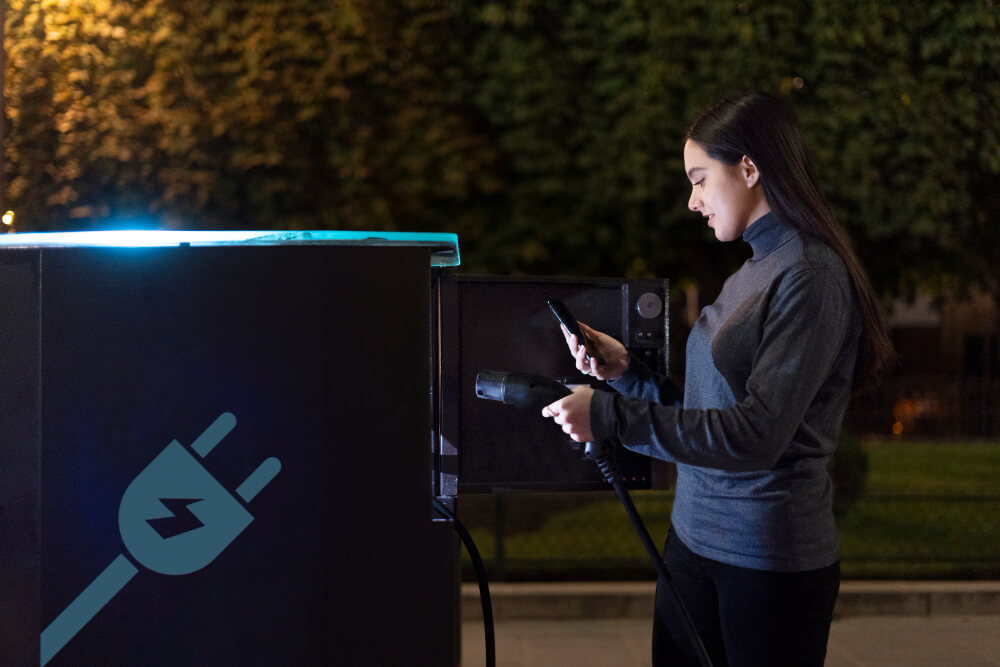
- Expanded Access to Charging Stations: EV drivers can easily find and book nearby charging points, reducing dependence on limited public infrastructure and minimizing range anxiety.
- Passive Income for Charger Owners: Individuals and businesses can earn by renting out their underused chargers, turning a static asset into a revenue stream.
- Quick Scalability Without Heavy Investment: Unlike traditional networks, P2P EV charging platform grows by leveraging existing chargers no need for land, installation delays, or high upfront costs.
- Flexible Scheduling and Dynamic Pricing: Hosts can control when their charger is available and set rates per session or per kWh, adapting to demand and usage patterns.
- Secure, Transparent Transactions: The app integrates digital payments, real-time availability, and user reviews—ensuring a trustworthy experience for both hosts and drivers.
Technical Stack
To ensure a fast, scalable, and secure experience for both electric vehicle (EV) drivers and charger hosts, P2P EV charging platform is built using modern, cross-platform technologies optimized for real-time performance and future growth.
1. Front-End Technologies
React Native: Enables a single codebase for both Android and iOS apps, reducing development time and ensuring a consistent user experience.
React.js: Powers the web admin dashboard with a responsive, component-based architecture ideal for managing large-scale real-time data.
2. Back-End Technologies
Node.js / Django: Node.js (JavaScript) offers real-time capabilities and high concurrency. Django (Python) provides a secure, scalable backend—either can be used based on project needs.
Express.js / Django REST Framework: For building RESTful APIs and handling app-server communication securely and efficiently.
3. Database
PostgreSQL: A powerful relational database ideal for structured data like bookings, users, and transaction logs.
MongoDB: A NoSQL option suitable for flexible data structures such as charger metadata, user preferences, and activity logs.
4. Real-Time & Notifications
Socket.IO / Firebase Realtime DB: Enables real-time booking updates, slot locking, and availability changes across all users instantly.
FCM (Firebase Cloud Messaging): Powers push notifications for booking confirmations, reminders, status updates, and promotional alerts.
5. Location & Maps
Google Maps API: Used for displaying charger locations, enabling navigation, calculating distances, and filtering by area.
6. Payments & Authentication
Razorpay / Stripe / PayPal: Integrated for fast and secure digital transactions with support for UPI, credit/debit cards, and wallets.
Firebase Auth / Twilio: Handles secure user authentication using OTP-based login or social login (Google, Apple).
7. Cloud Infrastructure & DevOps
AWS / Google Cloud Platform (GCP): Cloud services used for app hosting, load balancing, auto-scaling, storage, and global uptime.
CI/CD Pipelines: Tools like GitHub Actions or Jenkins streamline deployment, testing, and release cycles.
Overcoming Key Challenges
1. Real-Time Booking Conflicts
- The Problem: Multiple users may try to book the same charger slot at the same time, leading to double bookings or failed sessions.
- The Solution: The platform uses real-time slot-locking mechanisms. Once a slot is selected by a user, it is temporarily locked for a short duration during the payment process, preventing others from booking it simultaneously.
2. Host Verification & Trust
The Problem: New users may hesitate to charge at a stranger’s location due to concerns about safety, charger reliability, or fraud.
The Solution:
- Hosts are verified through KYC (ID and address proof).
- Verified badge system for trusted hosts.
- User reviews and ratings after each session help build reputation and transparency.
3. Low Host Adoption
The Problem: Potential hosts may lack awareness, technical know-how, or motivation to list their chargers.
The Solution:
- Simple onboarding process with guided steps and video tutorials.
- Freemium model to let hosts try the platform before committing to a subscription.
- Dashboard analytics showing earnings potential to incentivize participation.
4. Payment Disputes or Cancellations
The Problem: Disagreements may occur if a user cancels late, or if the session doesn’t go as planned.
The Solution:
- Escrow-based payment handling: Funds are held until the session is successfully completed.
- Cancellation and refund policies are clearly defined in the app.
- In-app dispute resolution with admin moderation and support.
5. Platform Scalability
The Problem: As more users and hosts join, the system could face performance slowdowns or bottlenecks during peak usage.
The Solution:
- Microservices architecture ensures different components (booking, payments, notifications) can scale independently.
- Deployed on cloud infrastructure (AWS/GCP) with autoscaling and load balancing.
- Regular performance testing and monitoring.
Sectors Benefiting from P2P EV Charging
P2P EV charging platform is built to serve a diverse range of industries that can benefit from offering or accessing electric vehicle (EV) charging infrastructure. Here are five key sectors we support:
1. Residential Communities: Housing societies and apartment complexes can monetize their shared chargers and offer convenience to residents and local EV drivers.
2. Retail & Commercial Stores: Shops, malls, and supermarkets can attract customers and increase footfall by offering EV charging during business hours.
3. Corporate Offices & Business Parks: Businesses with EV infrastructure can make chargers available to the public outside office hours, turning downtime into revenue.
4. Fleet & Delivery Operators: EV-based logistics companies can reduce downtime by accessing distributed charging options for smoother operations.
5. Hotels, Cafés & Restaurants: Hospitality businesses can list chargers to keep guests engaged while their vehicles charge, enhancing the customer experience.
How We Build P2P EV Charging Platform
1. Requirement Gathering: We begin by collaborating with stakeholders to understand the business vision, user types (drivers, hosts, admins), monetization models, core features, and geographic rollout plan. This ensures all functionality is aligned with business goals.
2. Market & Competitor Analysis: Our research team evaluates global and Indian EV charging platforms to identify trends, gaps, and successful features. This benchmarking helps define the app’s competitive edge.
3. UX Wireframing & Flow Prototyping
- Create low-fidelity wireframes to outline user journeys and app structure.
- Validate flows like charger listing, booking, payments, and ratings.
- Interactive prototypes are shared with stakeholders for feedback before visual design begins.
4. UI Design
- High-fidelity, brand-aligned UI screens are created for mobile and admin dashboards.
- Focus on intuitive navigation, minimal steps to complete tasks, and clear call-to-actions.
- Designed with accessibility, scalability, and responsiveness in mind.
5. Agile Development
- Development is broken into 2-week sprints using Agile methodology.
- Front-end (React Native, React.js), Back-end (Node.js/Django), and Admin Panel are developed in parallel.
- Functional builds are demoed at the end of each sprint for validation.
6. Testing & Quality Assurance
- Functional, performance, security, and device/browser compatibility testing.
- Includes unit testing, manual QA, and automated scripts for key workflows like payments, bookings, and OTP logins.
- Bug tracking via Jira or equivalent tools.
7. Deployment & Store Launch
- Infrastructure setup on AWS or Google Cloud.
- CI/CD pipelines for staging and production environments.
- Publishing to the Google Play Store and Apple App Store with all required compliance and metadata.
- Initial monitoring using crashlytics, logs, and analytics.
8. Post-Launch Support
- Regular updates for bug fixes, security patches, and OS compatibility.
- Performance monitoring and optimization.
- Feature enhancements based on user feedback.
- Ongoing hosting, analytics, and customer support.
Cost Estimation for Developing P2P EV Charging Platform
1. App Development Team: The development team is the foundation of the entire process. Their expertise determines both the quality and speed of the app’s delivery. Costs can vary depending on the experience level, and the number of professionals involved such as front-end and back-end developers, project managers, QA engineers, and DevOps specialists.
2. App Design: Design plays a critical role in creating a smooth and engaging user experience. A clean and intuitive interface can improve user satisfaction and reduce the risk of users abandoning the app. More detailed or customized designs can increase overall costs depending on the complexity involved.
3. App Features: The features you include in your app significantly impact development costs. Basic features like login, charger listings, and payment processing are less costly. Advanced features like real-time slot locking, map-based search, wallet integration, and host dashboards require more development time and resources, increasing the budget.
4. App Testing: Before launch, rigorous testing is needed to ensure the app runs smoothly across different devices and platforms (Android, iOS, web). This phase helps identify and fix bugs, ensure security, validate performance, and confirm that all user flows work as expected. Custom testing scripts, automation, and large-scale testing environments can raise the cost.
5. App Maintenance: After the app goes live, continuous updates and support are essential to keep it running effectively. This includes fixing any emerging bugs, ensuring compatibility with OS and browser updates, and adding new features based on market trends and user feedback. Maintenance is usually charged annually or monthly depending on the service-level agreement.
Estimated Cost Breakdown
| Development Stage | Estimated Cost (USD) |
|---|---|
| App Conceptualization | $0-$5,000 |
| UI/UX Design | $5,000-$10,000 |
| Front-End Development | $5,000-$15,000 |
| Back-End Development | $10,000-$25,000 |
| Integration with Payment Gateway | $0-$5,000 |
| Testing and Quality Assurance | $5,000-$10,000 |
| Deployment and Launch | $0-$5,000 |
| Post-Launch Maintenance & Support | $2000-$10,000 |

Why Choose Us To Develop P2P EV Charging Platform
Choosing the right development partner is critical for the success of your electric vehicle (EV) charging platform. Here’s why our team is uniquely positioned to deliver a high-performance, scalable, and user-friendly P2P EV charging platform tailored to your vision:
1. Proven Experience in Mobility & Energy Platforms: We’ve built platforms for electric vehicle (EV) rentals, urban mobility, and charging networks. Our hands-on experience in this domain helps us anticipate user needs, infrastructure challenges, and design scalable solutions that promote real-time discovery and reliability.
2. Accelerated Delivery Using Reusable EV Modules: Over 70% of the system components like map-based discovery, real-time booking, payments, notifications, and reviews are pre-built and tested. This dramatically reduces development time and costs, allowing a faster go-to-market launch.
3. Scalable and Modular Architecture: The app is designed using a microservices-based modular system that can easily scale with increased users and sessions. It supports integration with third-party APIs, charger hardware providers, and new business models like B2B white-label solutions.
4. Focus on Strategy, Not Just Code: We go beyond just building the app we work with you to shape the overall business strategy. From refining your revenue model and pricing structure to planning user acquisition and retention strategies, we help ensure your platform is built for success in the fast-evolving global EV ecosystem. Our approach combines product thinking with deep industry insight to give your app a competitive edge in any market.
5. Cross-Platform App Development: Built using React Native, we deliver fully responsive mobile apps for both Android and iOS with a single codebase ensuring fast development, reduced bugs, and consistent performance across devices.
6. Dedicated Support After Launch: Post-deployment, we provide continuous monitoring, bug fixes, feature updates, analytics, and performance tuning to ensure your app remains stable, secure, and aligned with evolving market needs.
Key Takeaways: P2P EV Charging Platform Development
- Massive Market Momentum: The global electric vehicle (EV) market is growing at an unprecedented pace, but public charging infrastructure is struggling to keep up. A peer-to-peer EV charging platform addresses this critical gap by unlocking underused private chargers and enabling communities to support each other accelerating electrification efforts and building a more resilient, decentralized charging network.
- Solves a Real Infrastructure Gap: P2P EV charging platform directly addresses the shortage of accessible chargers by leveraging idle residential and commercial charging points helping EV drivers find reliable, real-time charging options.
- Fast Time-to-Market with Reusable Components: With ~70% of modules (booking, maps, payments, notifications) already built, the app can be developed and launched faster and more cost-effectively than starting from scratch
- Diverse Monetization Opportunities: From per-session commissions to subscriptions, premium listings, and white-label enterprise deals, the platform supports multiple sustainable revenue streams.
- Built to Scale Efficiently: Modular, cloud-native architecture enables quick scaling across new cities and user segments without overhauling the system.
- Flexible for Diverse Environments: Designed to work seamlessly across homes, apartments, shops, and fleet hubs, the platform adapts to different power setups, pricing models, and usage needs making it ideal for a variety of urban and suburban settings worldwide.
- Your Partner in Clean Tech Innovation: With a proven track record in mobility, our team ensures your P2P EV charging platform is not only technically sound but strategically positioned for long-term success.
Frequently Asked Questions (FAQs)
The app allows EV drivers to find nearby private or commercial charging stations in real time, compare pricing, reserve slots, and pay digitally saving time and reducing range anxiety.
Yes, any individual or business with a compatible EV charger can register as a host. After a simple verification process, they can start earning by sharing their charger with other users.
Drivers pay through secure digital gateways (UPI, cards, wallets). The platform deducts a small commission from each transaction, and the remaining amount is credited to the host’s wallet.
The app has a cancellation policy and optional no-show protection. Depending on the timing of cancellation, hosts may receive partial compensation, and the slot is re-opened for others.
No specialized hardware is required beyond a compatible EV charger. Hosts simply need to provide charger specifications (type, power output, plug type) during listing so that drivers can filter based on compatibility.
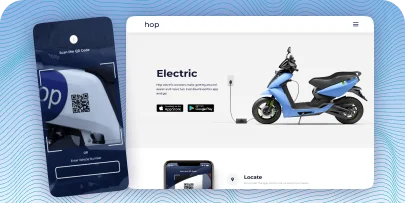

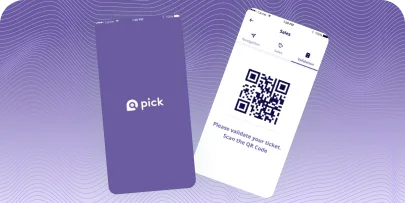
No Comments
Sorry, the comment form is closed at this time.